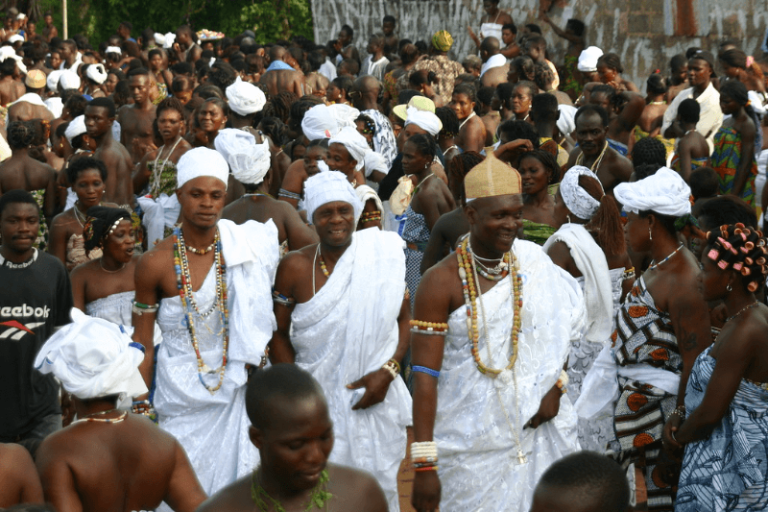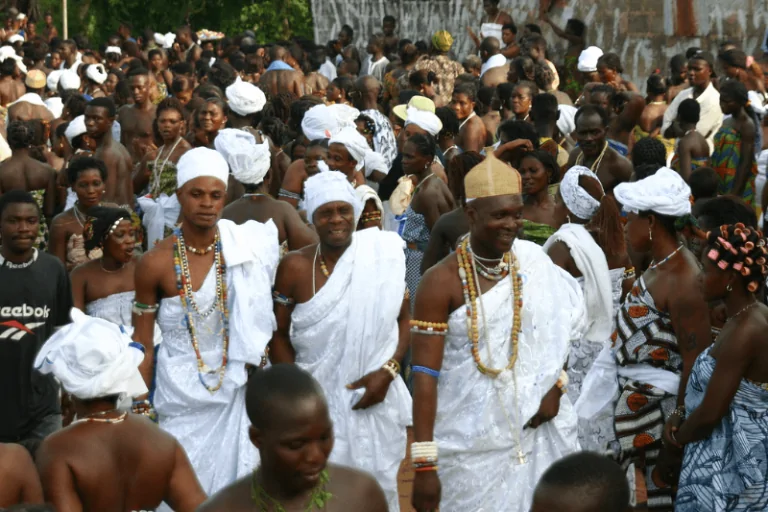

guin people of togo celebrate 361st edition of the sacred stone ceremony during epé ekpé festival
Every year, thousands of white-clad individuals swarm Glidji, southeast Togo, to take part in the Epé-Ekpé festival—a major Guin cultural and spiritual celebration. The Ekpé-sosso, or stone ceremony, an ancient custom carried down through the years, is fundamental to this event.
The Guin people mark their new year annually, between late August and early September. “Our ancestors always grant us what we pray for; it is our new year and we ask peace and prosperity. The benediction then rests upon the entire world, not only here in Togo,” explains Togbé, a traditional priest, stressing the ceremonial importance.
For generations, the Guin people—who left Ghana in the late 17th century—have maintained their custom. The ceremony’s 361st iteration this year is much awaited by the attendees for its spiritual and purifying features.
“We do this ritual every year. Our forebears passed down to us the holy stone. To us, it is our strength—a godsend. Ahogbéssi stresses the need of preserving this cultural legacy and says we have to carry on the tradition.
The ceremony starts with a somber parade of priests and priestesses accompanied by songs and dances, therefore fostering a joyful and pious environment. The most awaited event is when the priest comes out of the jungle carrying the holy stone, whose hue is thought to be ancestral message carrier.
This year the stone’s white color is regarded as a positive omen. Reflecting on the relevance of the stone, journalist and attendee Bruno Mensah says, “The stone sends a message; it urges us to unite and to forgive each other.”
The Guin people view the event as a moment of intense communion and reunion rather than as a custom. “Coming to this refuge is quite vital. Our Wailing Wall, our Mecca, our Rome is this. Mensah says, “This is our pilgrimage site while others travel there.”
The Guin new year festival reminds attendees of the virtues of unity, forgiveness, and respect of ancient wisdom, therefore entwining tradition and spirituality. “Young ladies have to avoid all kind of abortion. Emphasizing the moral lessons of the event, traditional priestess Miano Edwige tells us to pay our obligations and mostly develop a spirit of forgiveness.
For the Guin people and the larger Togolese society, the rite of the taking of the stone is more than just a ritual; it is a moment of vivid communion and rejuvenation.
Rob Walter Resigns his Position as coach for the Proteas men's team for white-ball games because personal problems needed attention.…
Starting April 2, South African drivers will get lower costs when filling their tanks as fuel prices decrease for all…
The U.S.-based driver training company Zutobi analyzed road safety worldwide and found South Africa stays last in driving danger since…
The Basketball Africa League (BAL) returns for its 2025 season with exciting changes and developments. Since 2019 the NBA-linked basketball…
The Somali president supports their military forces to eliminate the threats from Al-Shabaab, ISIS, and Al-Qaeda. The Somali National Army…
UAE President Sheikh Mohamed bin Zayed Al Nahyan held talks with President Faustin Archange Touadéra of the Central African Republic…
This website uses cookies.